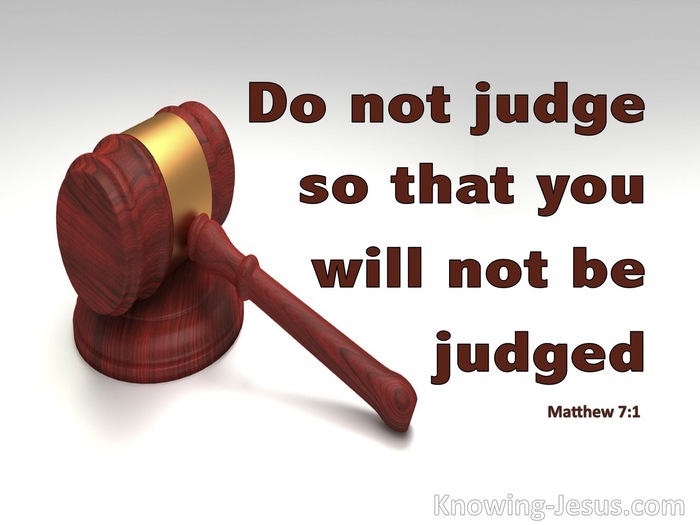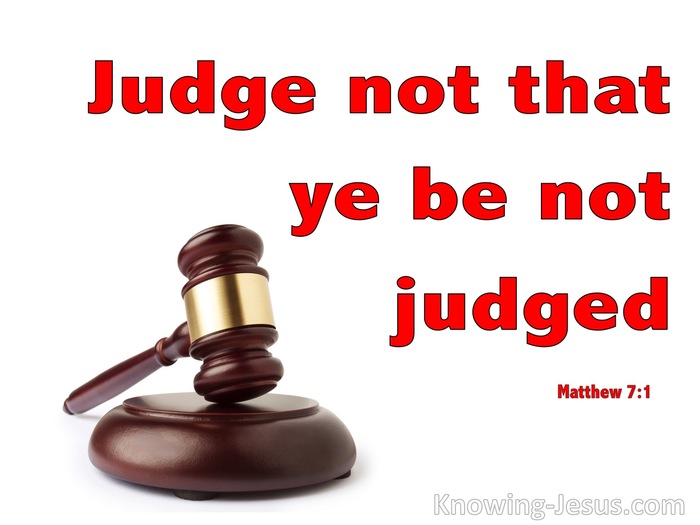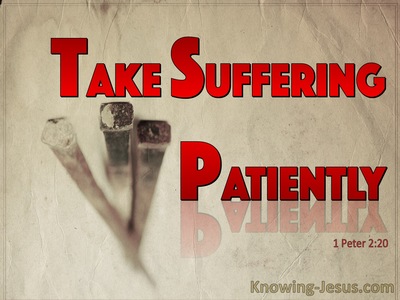◄ What Does Matthew 7:1 Mean? ►
"Do not judge so that you will not be judged.
Matthew 7:1(NASB)
Verse of the Day
Jesus had been teaching His disciples the principles and practice of righteousness in the life of a believer and the spiritual priorities that should govern our behaviour. He emphasised the importance of living our lives in dependence upon Him and charged us to live our life as unto the Lord and not for the applause of men.
As Christ draws His extended Sermon on the Mount to a close, He starts to give the godly perspective on criticism and judgment. But as always, it is vital to interpret this passage in context and not to view it in isolation, for in context Christ is not forbidding personal opinion, godly wisdom, or righteous judgement, nor is He disallowing the correction of false doctrine or heretical teachings. Christ is forbidding hypocritical judgment. He is denouncing the destructive, critical, condemnatory opinions of one believer on another.
Christians find it all too easy to pass judgement on another member of Christ's Body if their behaviour or life-style does not reflect their own walk with Christ (or what they think it should look like), but none of us has the right to judge the motive or conscience of another believer. We cannot read the mind of another, nor can we correctly assess the motive behind their actions. And neither should we judge the value or otherwise of someone's service to the Lord, nor should we be judgmental if they have opinions or reservations that conflict with our own opinions and scruples.
However, there are many areas in the Christian life where we have been given the right and authority to make judgements, which include disputes within a church body, the corrective role of elders in a congregation of believers, and especially in the area of doctrinal error. And we are certainly called upon to differentiate between what is good and what is evil, for we are not to have any connection with the destructive forces of evil, but to hold fast to that which is good.
What Jesus is doing in this passage, is to expose man's inclination to find fault in another believer while dismissing that same fault within themselves. What Jesus is identifying in this passage is hypocrisy, where internal corruption is hidden beneath external correctness, where we do the right thing with the wrong motive - and in the eyes of God this is gross hypocrisy.
It was the problem of unrighteous judgement, hypocritical conclusions, sanctimonious reasonings, legalistic pride, and destructive criticisms that caused Christ to utter the warning: "Do not judge so that you will not be judged." Jesus knew that the standard by which we judge others, will become the self-same standard by which we ourselves are measured.
We are given wisdom, discernment, and the indwelling Holy Spirit to judge between the good and the evil, and we have been given the Word of God to judge between truth and error. But we are also warned of the serious consequences and destructive force of the hypocritical, sanctimonious criticism of other believers.
Let us read the Bible with the eye of faith, with an understanding heart, with godly discernment, and in its correct historical context, and let us apply it in our lives in spirit and in truth. Let us flee from any form of unrighteous judgement, hypocritical conclusions, sanctimonious reasonings, legalistic tendencies, and destructive criticisms, but let us hold fast to sound doctrine and seek to walk worthy before the Lord.
My Prayer
Heavenly Father, keep me, I pray, from hypocritical thoughts and unrighteous judgement of others. But please give me the wisdom and discernment I need to judge between that which is good and that which is evil. Keep me walking humbly before You, and help me to always consider the needs of others before my own. This I ask in Jesus' name, AMEN.
Choose a Verse from Matthew 7
Matthew 7:1 Further Study
- Matthew 7:1 in the Parallel Bible
- Matthew 7:1 in the Thematic Bible
- Matthew 7:1 Cross References
- Matthew 7:1 Treasury of Scripture Knowing
- Matthew 7:1 Sermons
- Matthew 7:1 Prayers
- Matthew 7:1 Images
- Choose Chapter
Never miss a post
















